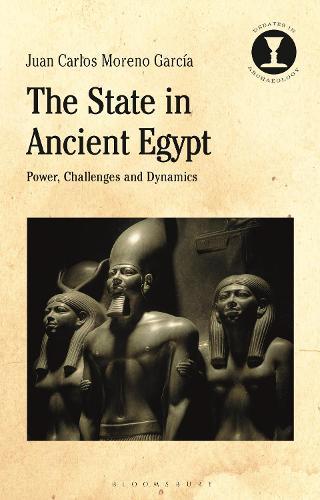Overview
This book presents a new analysis of the organization, structure and changes of the pharaonic state through three millennia of its history. Moreno García sheds new light on this topic by bringing to bear recent developments in state theory and archaeology, especially comparative study of the structure of ancient states and empires. The role played by pharaonic Egypt in new studies often reiterates old views about the stability, conservatism and ‘exceptionalism’ of Egyptian kingship, which supposedly remained the same across the Bronze and Iron Ages. Ancient Egypt shared many parallels with other Bronze and Iron Age societies as can be shown by an analysis of the structure of the state, of the limits of royal power, of the authority of local but neglected micro-powers (such as provincial potentates and wealthy non-elite), and of the circulation and control of wealth. Furthermore, Egypt experienced deep changes in its social, economic, political and territorial organization during its history, thus making the land of the pharaohs an ideal arena in which to test applications of models of governments and to define the dynamics that rule societies on the longue durée. When seen through these new perspectives, the pharaonic monarchies appear less exceptional than previously thought, and more dependent on the balance of power, on their capacity to control the kingdom’s resources and on the changing geopolitical conditions of their time.
Full Product Details
Author: Dr Juan Carlos Moreno Garcia (University Paris-Sorbonne, France)
Publisher: Bloomsbury Publishing PLC
Imprint: Bloomsbury Academic
Weight: 0.290kg
ISBN: 9781350074989
ISBN 10: 1350074985
Pages: 248
Publication Date: 05 September 2019
Audience:
College/higher education
,
Tertiary & Higher Education
Format: Paperback
Publisher's Status: Active
Availability: Manufactured on demand

We will order this item for you from a manufactured on demand supplier.
Reviews
"This fascinating discussion provides much food for thought. * Ancient Egypt * In his wide-ranging and learned research, Moreno García interrogates and rejects the ""anomalous"" status of ancient Egypt. Let new comparative studies continue. * Norman Yoffee, Professor Emeritus of Anthropology and Near Eastern Studies, University of Michigan, USA * A must read for all social science and comparative historians but also for those general readers interested in the latest analysis of Egyptian history. * J.G. Manning, Professor of History and Classics, Yale University, USA *"
This fascinating discussion provides much food for thought. * Ancient Egypt * In his wide-ranging and learned research, Moreno García interrogates and rejects the ""anomalous"" status of ancient Egypt. Let new comparative studies continue. * Norman Yoffee, Professor Emeritus of Anthropology and Near Eastern Studies, University of Michigan, USA * A must read for all social science and comparative historians but also for those general readers interested in the latest analysis of Egyptian history. * J.G. Manning, Professor of History and Classics, Yale University, USA *
In his wide-ranging and learned research, Moreno Garcia interrogates and rejects the anomalous status of ancient Egypt. Let new comparative studies continue. * Norman Yoffee, Professor Emeritus of Anthropology and Near Eastern Studies, University of Michigan, USA * A must read for all social science and comparative historians but also for those general readers interested in the latest analysis of Egyptian history. * J.G. Manning, Professor of History and Classics, Yale University, USA *
Author Information
Juan Carlos Moreno García is Senior Researcher at the CNRS, Paris-Sorbonne University and Invited Lecturer at the École Normale Supérieure, France. He has published extensively on pharaonic administration and socio-economic history, and his books include Dynamics of Production in the Ancient Near East, 1300–500 BC (2016) and Ancient Egyptian Administration (2013).




